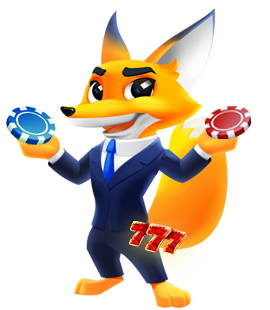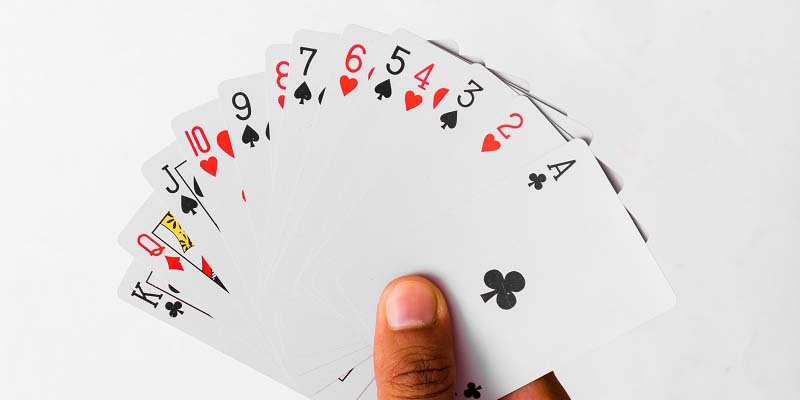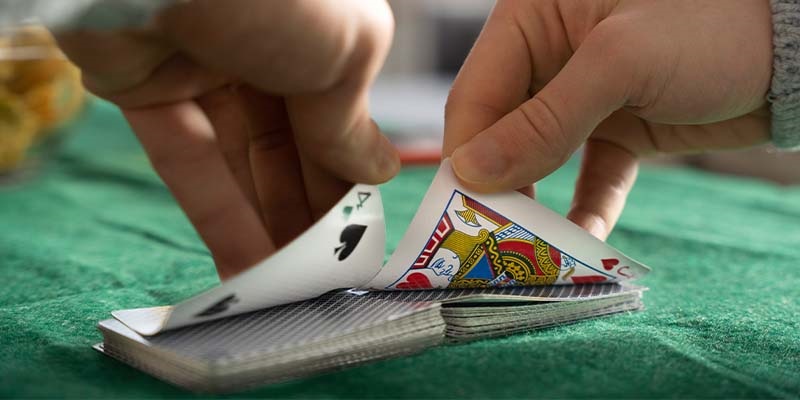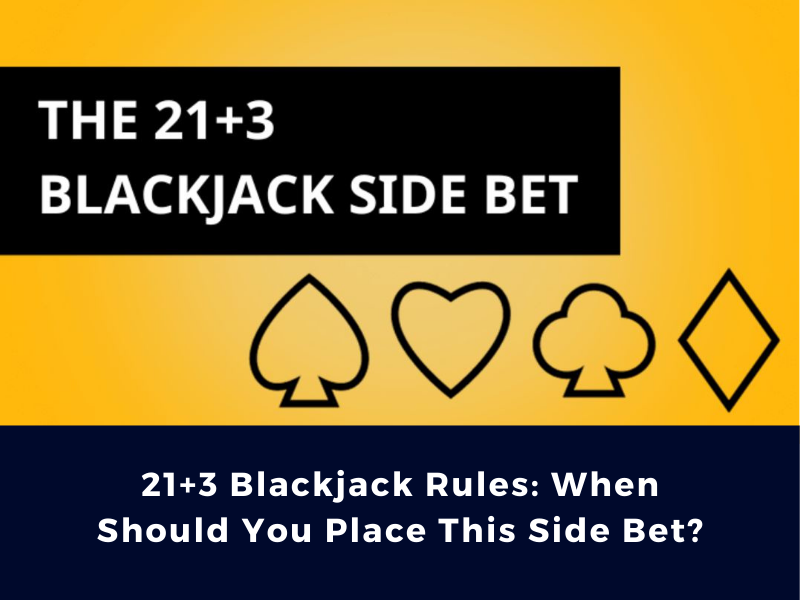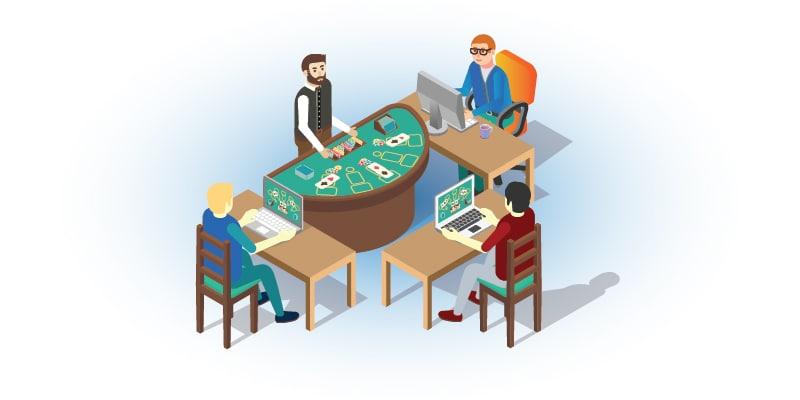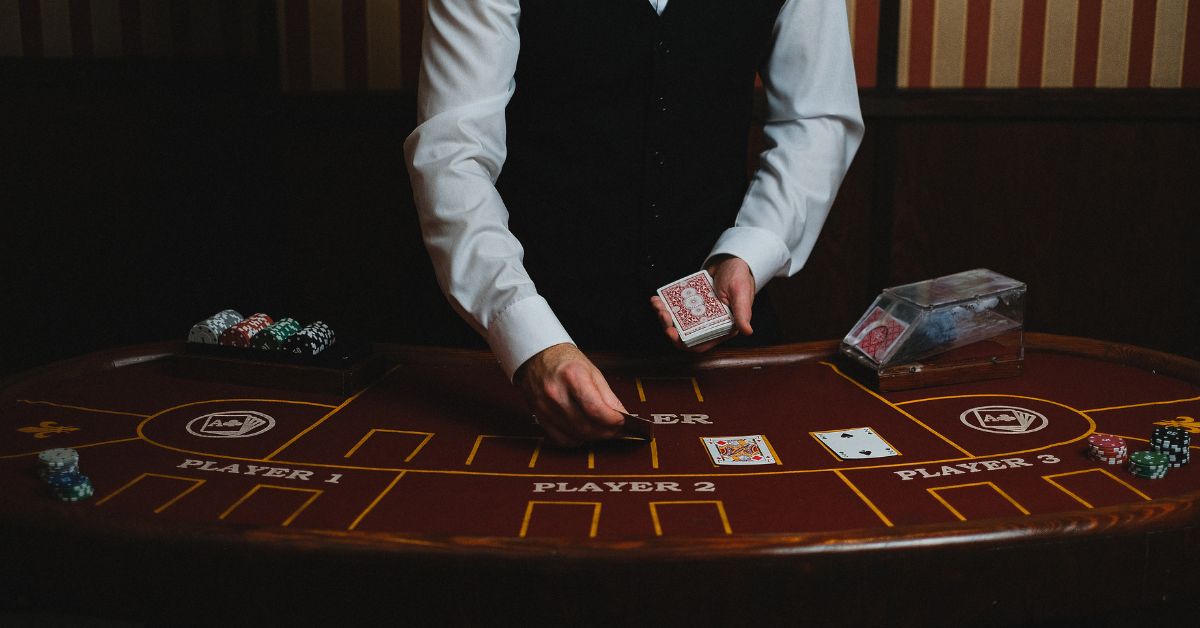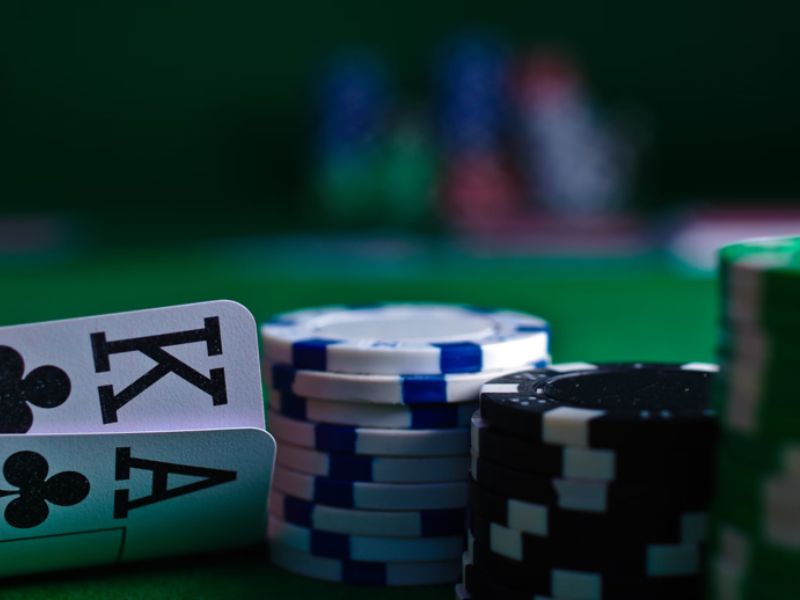When to Double Down in Blackjack: A Guide to Maximizing Your Wins
Blackjack is one of the most beloved casino games, known for its blend of luck and strategy. One of the key strategies that can make or break your game is the double down move. By understanding when to double down in blackjack, you can significantly boost your chances of winning. This guide will walk you through the meaning of double down, how it works, and most importantly, when to double down to maximize your odds while minimizing risks. Let’s get started!
Double Down in Blackjack Explained
Understanding the concept of doubling down in blackjack can significantly impact your gameplay, as it's a strategic move that can either boost your winnings or increase your risk. Let’s dive deeper into what it means and how to use it effectively.
Note: Before learning how to use the double down blackjack strategy, make sure you fully understand the basic rules of blackjack.
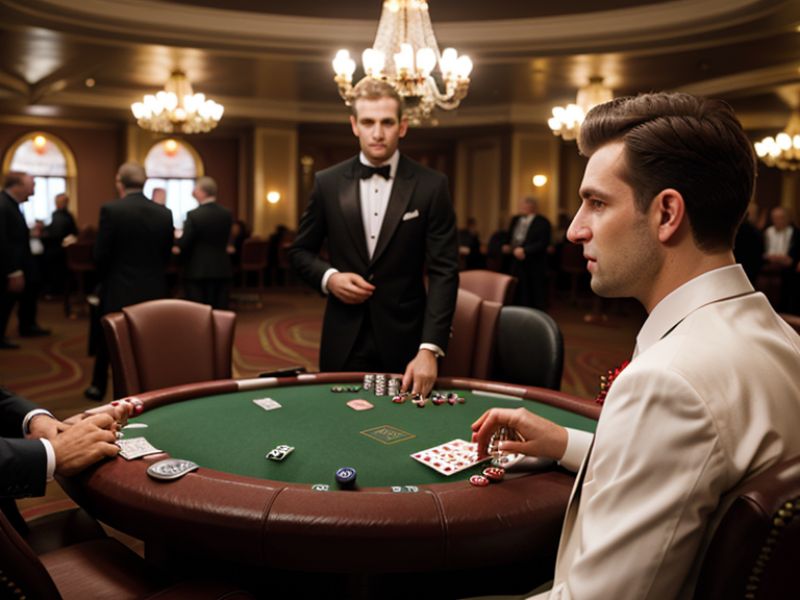
Double Down Blackjack Meaning
"Double down" in blackjack is a strategic move where a player doubles their original bet after receiving the first two cards. The catch is that the player will receive only one additional card and cannot draw any more cards after that. This move is high-risk but can be very rewarding if used correctly.
Example:
Imagine you are dealt a 9 and the dealer’s upcard is a 6. You decide to double down, meaning you double your initial bet and receive just one more card. If you get a 10, your hand totals 19, which gives you a strong chance of beating the dealer.
How Double Down Works
When you choose to double down, you follow these steps:
- After receiving your first two cards, decide to double your original bet if you believe you have a strong hand or if the dealer shows a weak upcard.
- You place an additional bet equal to your original wager.
- The dealer deals you exactly one more card.
- Regardless of what that card is, you cannot take any more cards after doubling down.
Important Note: Once you double down, you are fully committed to that move - you cannot change your decision. This makes timing and strategy key. |
Double Down Blackjack Rules
The rules for double down can vary slightly between online and land-based casinos, but the general guidelines are the same. Here’s a breakdown:
Online Casinos: Most online blackjack games allow players to double down on any two cards. Some variants may limit doubling down to specific hands (e.g., only on totals of 9, 10, or 11).
Land-based Casinos: In many brick-and-mortar casinos, players are usually allowed to double down when their initial two cards total 9, 10, or 11. In some cases, there might be restrictions on doubling down after splitting.
House Rules: Some casinos may offer early surrender or allow doubling down after a split, which can change how often you use this strategy. Always check the specific rules of the game you are playing.
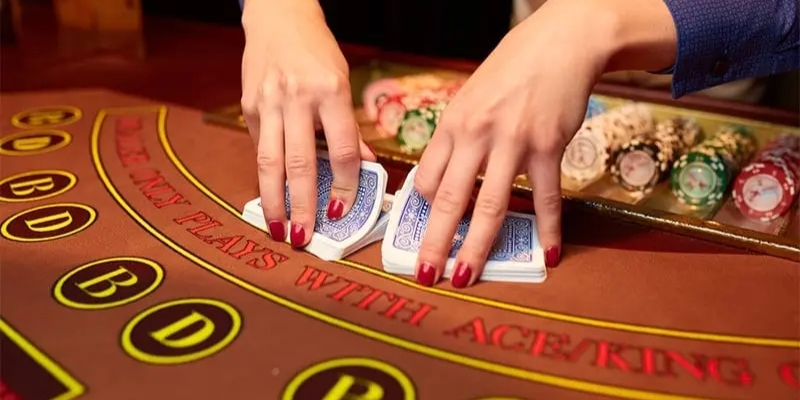
When to Double Down in Blackjack
Our double down blackjack strategy is designed to leverage the odds and probabilities to give you the best chance of maximizing your winnings. While there are no guarantees in blackjack, knowing when to double down increases your potential returns when the odds are in your favor.
Here are the key situations where you should consider using the double down option:
Hard 11 Against Any Dealer’s Card
The best time to double down is when you have a hard 11. A hard 11 means that your hand consists of two cards without an Ace, and the total value of the hand is exactly 11 points. For example, you could be dealt a 5 and a 6, 7 and a 4, or 9 and a 2.
No matter what card the dealer is showing, there is a high probability that your next card will be worth 10 points (like 10, Jack, Queen, or King). This makes doubling down a great move, as it maximizes your winnings when you are likely to hit 21 or get close to it.
Example:
- You are dealt a 6 and a 5 (totaling 11).
- The dealer shows a 7.
- You double down, and the next card dealt is a 10, giving you a total of 21.
Hard 9 or 10 Against the Dealer’s Low Card
When you have a hard 9 or 10, it’s another excellent opportunity to double down, particularly if the dealer is showing a low card (2 - 6). These hands are strong enough to take advantage of the dealer’s weakness.
- Hard 9: Double down if the dealer shows a 3, 4, 5, or 6.
- Hard 10: Double down if the dealer has a 2 through 9.
The goal is to draw a third card that’s worth 10 points, while the dealer will be forced to draw cards to reach at least 17. By doubling down, you can capitalize on the dealer's potential to bust when showing a low card.
Example for Hard 9:
- You are dealt a 5 and a 4 (totaling 9).
- The dealer shows a 5.
- You double down, and the next card dealt is an 8, bringing your total to 17 - a strong hand when the dealer is showing a weak upcard.
Soft 16-18 Against the Dealer’s Low Cards
A soft hand is a hand that contains an Ace, which can count as either 1 or 11. When you have a soft total between 16 and 18, it’s a good time to double down if the dealer is showing a low card (2 - 6). These hands offer flexibility since the Ace can adjust its value based on the next card drawn.
If you receive a low card after doubling down, your hand improves. If you get a high card (such as a 10 or 9), the Ace can switch to count as 1, so you still maintain a decent hand without busting.
Example for Soft 16:
- You are dealt an Ace and a 5 (totaling a soft 16).
- The dealer shows a 4.
- You double down, and the next card is a 9. Your total is now 15, but the dealer is likely to bust with their weak hand.
Even though you ended with a lower hand, doubling down in this situation gives you a higher chance of winning because of the dealer’s weak upcard. This same principle applies to soft 17 and soft 18, where you still have flexibility with the Ace.
When Not to Double Down in Blackjack
While doubling down can be a highly effective strategy when used in the right situations, there are also key moments when it’s best to avoid this option. Understanding when not to double down is crucial to minimizing losses and making smart decisions at the table. Here are the main scenarios where you should avoid doubling down:
When the Dealer is Showing an Ace
When the dealer’s upcard is an Ace, the risk of the dealer hitting a blackjack is significantly higher. In this case, doubling down is a bad idea, as you are likely to lose the additional bet if the dealer hits 21. Instead of risking more chips, you should stick with your initial bet and play out the hand. You can still hit if you want more cards, but avoid making extra bets in this situation.
Example:
- You are dealt a 10 and a 9 (totaling 19), and the dealer is showing an Ace.
- Instead of doubling down, you should play it safe and stick with your current hand because the dealer might hit 21 with their Ace.
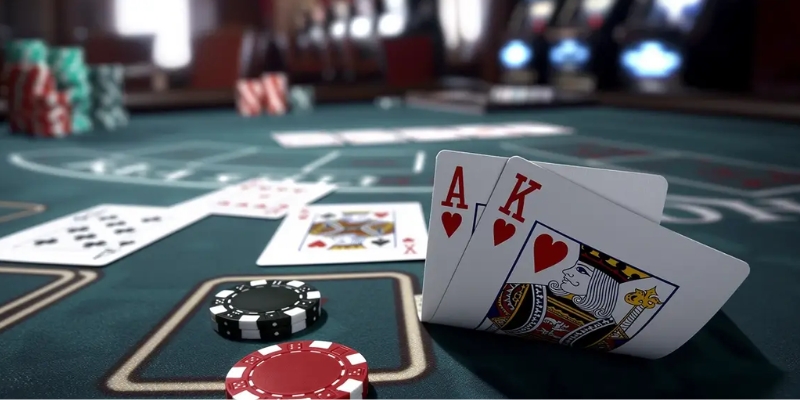
When You Have a Hard 12 or Higher
When your hand totals a hard 12 or higher, doubling down is not advisable because the risk of busting is high. If you draw a card worth 10 points, your hand will exceed 21, resulting in an automatic loss. In this case, it’s better to play it safe and just risk your initial bet.
Example:
- You are dealt a 7 and a 5 (totaling 12), and the dealer is showing a 7.
- Doubling down would be risky because you might draw a 10-point card, leading to a bust.
Important note: For hands 13 or higher, the risk increases even more, making it crucial to avoid doubling down when the chances of busting are high. |
When Chasing Losses
One of the biggest mistakes a player can make is doubling down in an attempt to win back money lost in previous rounds. This emotional decision, often driven by frustration, can lead to even larger losses. Blackjack can be a profitable game with a low house edge, but only if you remain disciplined and follow a sound strategy.
Doubling down should never be used as a way to recover from previous losses. Instead, focus on making strategic decisions based on the hand in front of you, and know when to walk away if the game isn’t going in your favor.
Tips: If you’re feeling frustrated or tempted to recover losses by doubling down, it’s better to take a break. Emotional decisions rarely lead to positive outcomes in blackjack, and chasing losses will likely result in even greater risks.
Combining Double Down with Split
In blackjack, combining the strategies of double down and splitting in blackjack can offer significant advantages, but it’s important to know how and when to use them. After splitting a pair, you may be able to double down on one or both hands, depending on the casino’s rules.

This option is particularly beneficial when you’ve split strong pairs like 8s or 9s and are dealt a card that brings your hand to a total of 9, 10, or 11. However, always consider the dealer’s upcard before doubling down.
For a complete breakdown of the strategy and when it’s best to use double down after split, check out our detailed guide here: Double Down After Split.
How to Signal Double Down in Blackjack
When playing blackjack at a physical casino, it’s important to know how to properly signal your intention to double down. This not only demonstrates your familiarity with the game but also ensures a smooth, professional gaming experience.
At land-based casinos:
- To signal a double down, you simply place a bet equal to your original stake next to your initial wager (not on top of it).
- The dealer will then deal one more card horizontally to indicate that the hand is complete, no matter what card is drawn.
- In some casinos, you can also point one finger after placing the chips to indicate that you want just one more card.
At online casinos:
- To double down, all you need to do is click the double down button, which is usually marked with a “2x” symbol or a stack of chips.
- The button will only appear when the option to double down is available, ensuring you don’t accidentally use the strategy in the wrong situation. You can explore CasinoMentor's top-rated online casino list to enjoy the best blackjack experience!
Things to Pay Attention to in Double Down
While doubling down offers the potential for larger payouts, it also comes with increased risks. Here are some key risks to keep in mind:
Losing the Entire Bet:
If you double down at the wrong time, such as when the dealer has a strong hand, you risk losing double the amount of your original bet. For instance, if you double down with $20, you could end up losing $40 in total if the dealer wins the hand.
Restricted to One Card:
Once you double down, you are only allowed to receive one additional card, regardless of what that card is. If you get a low-value card, like a 2 or 3, you’re stuck with that total and can’t hit again. This can leave you in a weak position, especially if the dealer has a strong hand.
Not Understanding the Rules:
Some casinos have specific rules regarding when and how you can double down. For example, certain tables may only allow you to double down on a hard 9, 10, or 11, while others may restrict it based on the dealer’s upcard. Failing to understand the rules at your specific table can lead to costly mistakes. Always check the table rules before using the double down option.
For example: You have a hand totaling 10 and decide to double down against the dealer’s 10. The next card you get is a 3, leaving you with a total of 13. The dealer draws a face card, bringing their total to 20. You lose both the original bet and the doubled bet, resulting in a total loss of double the amount.
Conclusion
Understanding when to double down in blackjack - such as with a hard 9, 10, or 11 - can greatly improve your odds, but it's important to avoid doubling down at the wrong time, like when the dealer shows an Ace. By combining this strategy with basic blackjack tactics and practicing regularly, you’ll increase your chances of success at both online and land-based casinos. Remember, timing and discipline are key to making the most of double down opportunities.




